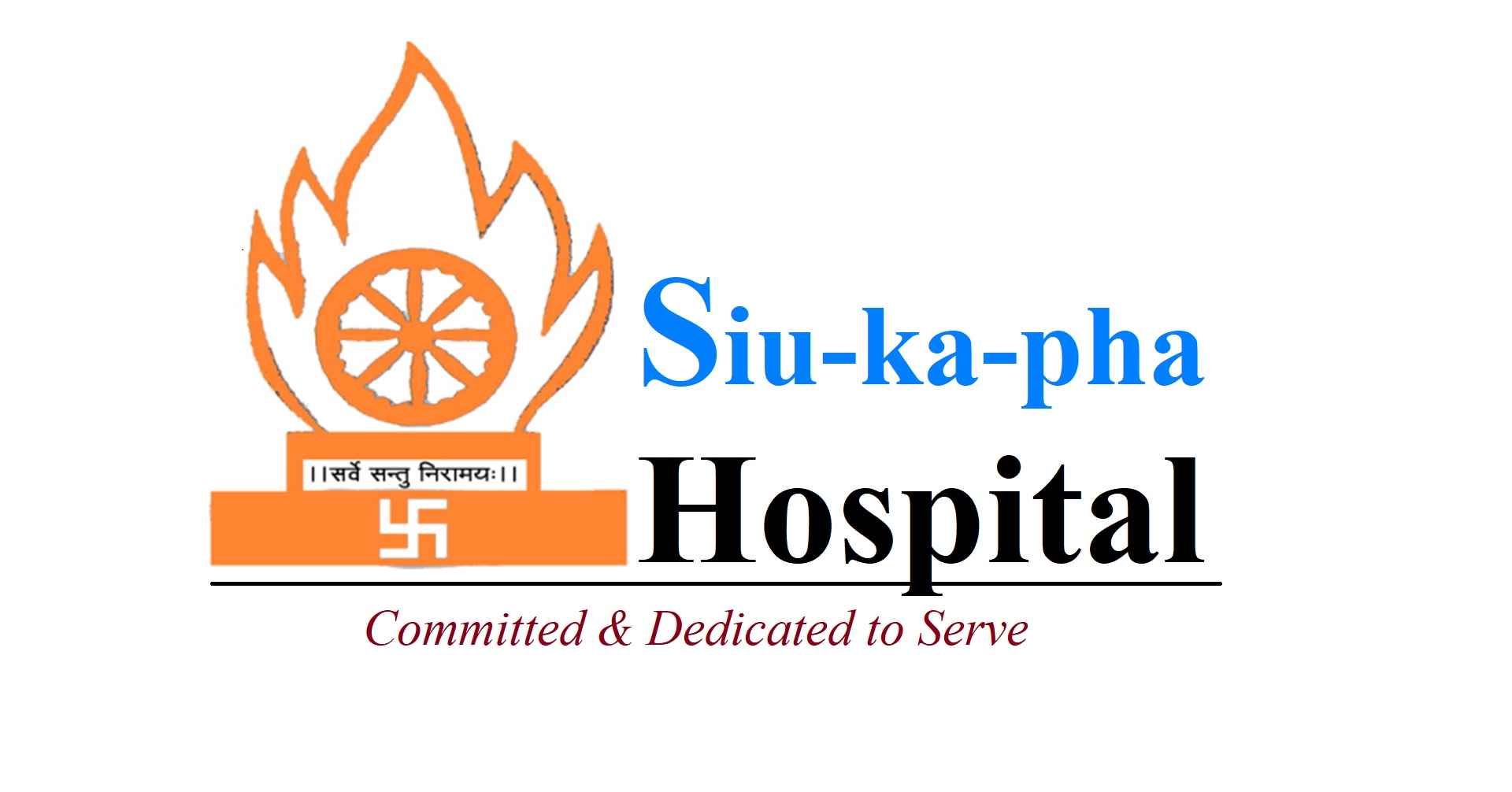Ophthalmology Department
Ophthalmology is a surgical sub-specialty that deals with the diagnosis and treatment of ocular disorders.
An ophthalmologist is a specialist in the diagnosis, investigation & treatment of medical and surgical ocular disorders.
A BRIEF LIST OF COMMON DISEASES TREATED BY OPHTHALMOLOGIST:
- Cataract
- Excessive tearing (tear duct obstruction)
- Proptosis (bulged eyes)
- Thyroid eye disease
- Eye tumors
- Ptosis
- Diabetic retinopathy
- Dry eye syndrome
- Glaucoma
- Macular degeneration
- Retinal detachment
- Endophthalmitis
- Refractive errors
- Strabismus (misalignment or deviation of eyes)
- Uveitis
- Ocular trauma
- Ruptured globe injury
- Orbital fracture
Even if your eyes are healthy, it is still important to get regular eye examinations.
Everyone should have an eye examination at least once a year, regardless of age. When consulting an eye doctor, you should ask pertinent eye health questions to be aware of your eye conditions.
SUB-SPECIALITY SERVICES:
Some of the sub-specialties we offer include:
- Cataract services
- Child eye care services
- Cornea services
- Glaucoma services
- Neuro-ophthalmology services (related to the brain and optic nerves)
- Orbit & oculoplastic
Cataract Services
A cataract is a clouding of the clear lens of the human eye.
Cataracts gradually worsen over time, resulting in symptoms like blurry vision and even vision loss. The opaqueness of the transparent lens of the eyes is known as a cataract.
Age, eye injuries, inflammation, diabetes, and long-term steroid use are the causes of cataracts.
Infection that a mother contracted while pregnant and passed onto her unborn child may also cause cataracts in children.
Signs And Symptoms
- Gradual loss of vision
- Both eyes are involved at varying stages
- The lens of the eye turns gray
- The patient has hazy, double, or multiple vision
Prevention
There is no prevention for cataract development. However, blindness due to cataract can and must be avoided through timely surgical intervention.
Treatment
Medication of any kind cannot cure or delay the development of cataract
- Surgical removal of the clouded lens and replacement by an Intraocular Lens (IOL) can restore normal vision.
- Cataract surgery is a simple procedure. It is normally done under local anesthesia.
- Cataracts can be operated by using various procedures like ECCE, SICS, Phacoemulsification, etc. After cataract removal, an intra-ocular lens is implanted, made of different materials like PMMA, Silicon, etc. This lens may be foldable or rigid.
Depending upon the requirement and various factors mono-focal or multifocal lenses are prescribed. Depending upon the advice of the surgeons; the patient’s choice; and what is best for the patient from among the options available; the type of lenses are selected and the procedure is finalized.
We also conduct regular cataract screening camps for free treatment and surgery of economically underprivileged people living in remote & rural areas. This is one of our basic goals to reduce the cataract and blindness load in our community.
Our Cataract and IOL Department is well-equipped to treat all kinds of cataracts. Expert doctors, well-trained support staff, and state-of-the-art diagnostics ensure the best possible care for patients. Our competent surgeons perform all types of cataract surgeries, including phacoemulsification, manual small incision cataract surgery, and surgery on complicated cataracts.
The state-of-the-art facilities include:
- High-end phacoemulsification system which enables phacoemulsification (Micro incision Suture-less surgery) under topical anesthesia.
- Microscopes which enable excellent visibility and enhance the margin of safety.
- Use of high-quality IOLs (outsourced from multinational companies) aids to improve post-operative vision and treat refractive conditions like high myopia, presbyopia, and astigmatism.
- Advanced surgical instruments which aid in precision during surgery
- Zeiss Nd:YAG laser machine to treat posterior capsular opacification occurring after cataract surgery (Nd:YAG Laser Capsulotomy)
- Latest generation optical biometers, IOL Master to accurately calculate intraocular lens powers in normal eyes and eyes with pre-existing conditions such as high myopia
- Digital slit lamp photography unit.
Child Eye-Care Services
We have advanced facilities for examining and treating children’s eyes.
The most common childhood eye diseases treated are:
- Refractive Errors
- Squint
- Amblyopia
- Childhood Cataract
- Genetic Eye Diseases
- Congenital Glaucoma
- In association with the Retina Clinic, it conducts ROP screening and offers treatment for Retinopathy of Prematurity (ROP) in premature babies.
- In collaboration with the Vision Rehabilitation Centre, the clinic makes all efforts to enhance the residual vision in children with visual impairment by providing Low Vision Aids (LVA)
Cornea Services
The major cause of blindness is cornea and cataracts globally. A range of infectious and inflammatory eye conditions affect the transparent part of the cornea and cause corneal blindness. They add a substantial burden to the community in general and healthcare resources in particular all over the world. Further, individuals with corneal blindness are usually of a younger age group compared with those suffering from cataracts. Hence, in terms of total blind years, the impact of corneal blindness is greater.
Our services include the management of corneal and external eye diseases, anterior segment trauma, and ocular surface disorders including dry eye, contact lens-related eye problems, and prescribing contact lenses. The clinic works with the Department of Microbiology for the management of infectious keratitis. With a largely rural agricultural community, there are a considerable number of patients with corneal ulcers who attend the clinic. The cornea clinic co-manages ocular conditions by appropriate referral to other departments as well as to other medical specialties as required.
Significant conditions managed in this clinic are Infectious keratitis (corneal ulcers), Keratoconus, Corneal dystrophies, and ocular trauma.
Routinely performed procedures under Cornea services:
- Pterygium Surgery with MMC
- Corneal injuries repair
- Management of Conjunctival tumors (excision biopsy)
- Contact lens prescription, teaching patients regarding the use & maintenance of contact lenses.
- Corneal Tattooing
- Corneal ulcer scrapping, histopathological & culture examination.
Glaucoma Services
The clinic evaluates and treats patients with glaucoma, and other diseases characterized by increased pressure in the eye or glaucomatous atrophy of the optic nerve. Patients of all age groups, from newborns to the elderly having glaucoma will be treated.
Our clinic is well-equipped with the latest diagnostic and therapeutic modalities to combat blindness due to the disease.
Primary Glaucoma, which is largely inherited, in addition to Secondary Glaucomas caused by trauma, inflammation, Diabetes, Retinal Vascular Disease, and hyper-mature cataracts. Deviations from normal retinal nerve fiber thickness are the earliest structural changes in persons with glaucoma.
Investigation modalities performed here are:
- HVF analysis (Perimetry)
- OCT scanning (ONH &RNFL analysis)
- Applanation Tonometry
- Gonioscopy
Treatment:
- Medication (anti-glaucoma medication/eye drops)
- Laser Procedures
- Surgical procedures
Neuro-ophthalmology services
The optic nerve, which transmits visual impulses to the brain, is likely to be damaged due to inflammation, trauma, or other eye disorders affecting the eye and the brain.
The Neuro-ophthalmology service evaluates patients with symptoms of double vision due to stroke, compressive lesions of the brain or Myasthenia gravis, visual loss due to neurological diseases such as optic neuritis, field defects, pupillary abnormalities, etc.
Typical conditions treated:
- Visual loss due to optic neuritis, traumatic optic neuropathy, Ischemic Optic Neuropathy
- Visual field defects due to neurological disorders like stroke, intracranial tumors, hemorrhage in the brain, injuries
- Pupillary abnormalities
- Double vision due to cranial nerve palsies
- Papilledema due to raised intracranial pressure.
- Ocular myasthenia (Myasthenia Gravis)
Orbit & Oculoplastic
It is a sub-specialty of ophthalmology that handles anomalies of lids, lacrimal drainage system, extraocular structures, bony orbit, and other ocular adnexa.
The department has excellent support facilities, diagnostic equipment like Ultrasound A & B scans, an X-ray unit, CT scan, and MRI (in collaboration), well established Ocular Microbiology & Pathology labs. Standard surgical theatre is provided with an operating microscope, surgical lights, fiber optic light, bipolar and unipolar cautery unit, and Radio frequency cutting- coagulation system.
Procedures performed:
- External/Endo-nasal laser dacryocystorhinostomy (DCR) and dacryocystectomy (DCT)
- Orbital floor fracture repair
- BOTOX and fillers
Vitreoretinal & Uvea Services
The clinic is well-equipped with state-of-the-art technology to diagnose and manage. Vitreoretinal conditions. Treatment includes both medical and surgical interventions.
State-of-the-Art equipment for investigation and diagnosis of various Vitreoretinal diseases include:
- Fundus Fluorescein Angiography (FFA) and Indocyanine Green Angiography (ICGA)
- Optical Coherence Tomography (OCT)
- B-scan Ultrasonography
The Vitreoretinal clinics offer medical management for various retinal conditions like Diabetic Retinopathy, retinal vein occlusion (CRVO & BRVO), Arterial occlusion (CRAO), Central serous retinopathy (CSR), Age-related Macular Degeneration (AMD), etc., Intravitreal injections of Anti-VEGF drugs and steroids used to treat macular edema as well as choroidal neovascular membranes (CNVM).
State-of-the-Art Technology for Eye Care & Phacoemulsification Surgery
All our specialists and nurses are highly educated and well-trained in their fields. Our specialist is well-trained in premier eye superficiality institutes of India like Sri Sankardeva Nethralaya, Guwahati and Sankara Nethralaya, Chennai with vast surgical exposure.

Our Values
- Patient-centric approach
- Ethical code of conduct
- Integrity
- Honesty
- Transparency
- Empathy & compassion.
Finest EYE CARE Centre in Assam
Nestled in Assam, we are developing as a leading eye care center in North-East India, offering state-of-the-art technology and treatment of International Standards.
FAQ's
The ophthalmology is a medical department that specializes in the diagnosis, treatment, and management of eye diseases and disorders.
The ophthalmology department at Siu-Ka-Pha Hospital offers a range of services, including comprehensive eye exams, diagnosis and treatment of eye conditions such as cataracts, glaucoma, macular degeneration, diabetic retinopathy, and other ocular diseases.
You can schedule an appointment with an ophthalmologist at Siu-Ka-Pha Hospital by calling the hospital’s main phone number and requesting to be connected to the ophthalmology department. Alternatively, you can use the hospital’s online appointment scheduling system.
A comprehensive eye exam typically includes a series of tests to evaluate the health of your eyes, including tests for visual acuity, depth perception, color vision, eye muscle function, and the health of the cornea, retina, and optic nerve. The exam may also include dilation of the pupils to allow for a more thorough examination of the inside of the eye.
A Neuro-ophthalmology is a subspecialty within ophthalmology that focuses on the diagnosis and treatment of visual problems related to the nervous system. This includes conditions that affect the optic nerve, eye movements, and the connections between the eye and the brain. At our Siu-Ka-Pha Hospital we have best Neuro-ophthalmologists Who are specially trained to recognize and manage conditions that affect both the eye and the nervous system.






















 Call Us
Call Us Book Appiontment
Book Appiontment